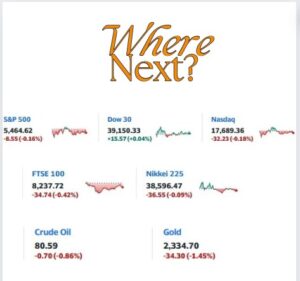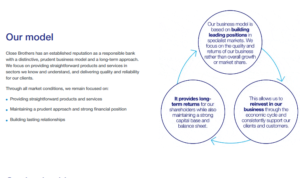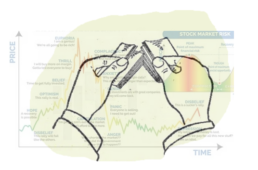Where will the cards fall ?
The half year approaches - what has happened? Two very different quarters so far. And Investment Trusts complain too much, having stuffed their boards with placeholders with minimal stakes in the shares and multiple appointments. In markets many things still depend on how the cards (and ballots) fall.
THE FIRST HALF
With current interest rates for hard currency, high yield bonds, around 6%, you would expect riskier equity markets to be giving you over 10% a year, made up of a mix of capital and dividends. That’s the bar; it is quite high just now.
Looking back a year, only Japan and America comfortably achieve that, the S&P up +24%, NASDAQ up +30%, Nikkei up +14%. Germany creeps in at +10%, neither France nor the UK do. Outside developed markets, it is largely dire, only India at +25%.
Then looking just at the first half, all of Japan and Germany’s gains came in the first quarter, so they are now sitting well off their twelve-month highs. While as we know the big three, S&P, NASDAQ and SENSEX, are now close to all-time highs, they powered through the second quarter.
So, the challenge is, do they go on up, do the markets that have fallen back, after a good first quarter, come back to life, or do some of the dogs perform?

Some major markets, Friday close and intra day
I have no great faith in the UK market, nor in a new government being much better at growth (it can hardly be worse) than the current mob. But there are cheap looking international stocks in the UK and the punishment meted out to real assets, by interest rates and shrinking bank balance sheets, might be finally ending.
While quite clearly the good middle tier stocks are easily cheap enough to lure in bidders from abroad or private equity, in some number. UK valuations are in short OK, not something you can necessarily say about the US.
The residual underperforming markets do often have a nice yield, but who cares? With bond yields high and staying high, in an appreciating currency, why take a cut in yield in order to buy equities? Plenty of time for that later.
Anyhow in most European and Emerging markets, equities seem not to be able to get out from under their own feet, endlessly tripping over their own fractured politics.
INVESTMENT TRUSTS
We are hearing a lot of moaning about Investment Trusts, which the FCA really do not like. EU law always struggled with the trust concept anyway. That the FCA has shown no interest in freeing us from those shackles is not a surprise, it seems they too would rather channel money to Nvidia than invest in the UK. Here is their Lordships’ briefing on what EU rules we might be repealing. Nothing for Investment Trusts.
I am on balance on the Trust’s side, I do think closed end structures (as they all are) allow long term decisions, while protecting daily dealing, one of Europe’s quirky hang ups. Daily dealing is fine in deep markets, but an illusion in many medium and small equity markets. With liquidity ever more narrowly focused, closed end funds seem more, not less, important, for balanced capital allocation, competition and growth.
Trusts directors should also protect investors from over mighty fund management houses, who treat closed end funds with disdain, as captive funds, with often high fees. Their greed lets in low-cost passive competitors. Instead, their permanent capital should come with an obligation to hunt down good, index beating performance.
Sadly, the FCA has perpetuated a system, where the fund management house appoints the Boards, not, in reality, the other way round. So, they are decorative, good for marketing, and highly unlikely to fire the manager. Too many are industry insiders, serving on multiple trust boards, often in sequence. Seldom do they have an investment of at least their annual pay cheque in their current Trust, and often, little investing expertise in the relevant area.
So, Investment Trust boards hardly ever sack fund managers for poor performance. David Einhorn explains the bigger issue very clearly, noting benchmark hugging over time is what investors now get. There is a clear link to poor performance and bigger discounts, and to big discounts and treating shareholders badly: One area where big certainly does not mean better.
Rather than sabotage the sector with old, irrelevant EU law, the FCA should be hunting down poor performance, and making the “independent” directors just that, including banning directors shuffling around a set of one-manager trusts.
INTEREST RATES
We have just had Powell hold US rates, saying it is all data dependent, and slightly oddly he conceded the expectation is for a pick up in inflation, on the technical grounds that the abrupt drop in inflation last year, creates base effects.
Although he rules out more hikes; you get the feeling if he had held his nerve last summer, and added a bit more, inflation could be beaten by now. Not that he wants to or can add such instability now, so he is stuck, and we with him, watching paint dry.
With no real distress there is no pressure to cut prices, service inflation remains too high, energy prices are still quite strong, so no longer giving a deflationary boost. Both the AI boom and the resulting stock price gains, encourage consumer spending and keep (in most sectors) a strong labour market.
Markets are evidently OK with that, falling rates, no recession, growing earnings, is almost ideal. Meanwhile we are all hoping that Congress will keep either of the two old men from doing anything unusually silly, and the electorate will keep Congress on a tight leash.
Quite a lot of hoping and several months still to go.
NOT THE FOGGIEST
We have no idea why we are having a General Election just now. Not the foggiest idea how we remove the keystone of free trade and yet the edifice of beneficent competition remains intact. We have not much idea how you have free capital flows without free trade, or how floating exchange rates then work.
But we are all about to find out, apparently.
Meanwhile, we did enjoy Andrew Bailey’s valedictory talk, at least under this decade of Tory rule, to the LSE. It made clear the Bank’s view on its own Reserves and fired a shot across Rachel Reeves’ bow in the process.
ELECTION TIMING: WHY NOW?
We could speculate on Rishi’s slicing through the Gordian Knot, and admire his nerve in doing so; but it is just speculation. We do know a General Election costs about £20 million per political party (yes, only that much in the UK). This will have required many earnest meetings and interminable slide decks. So, it must have looked like a good idea, at least to someone.
It leaves some largely superficial legislation half completed, and hastens the retirement of hundreds of Tory MPs, voluntary or otherwise. Even Gove has gone. A whole new cast will take the stage. Starmer then has eight weeks of summer bedding-in, before the treadmill grinds into action for him too.
A new cast won’t change the script, however. They should be just as careful of sinking beneath ill-judged promises; delivery is all, and the toolbox is empty. Whilst coups and factions could be just as ridiculous.
A DIVIDED SMALLER GLOBAL ECONOMY
Free trade and the wealth of nations is much more interesting. In the last five years COVID has allowed the erection of unthinkable trade barriers. Meanwhile, an imperial power wary of spilling the precious blood of just one nation, has over indulged in the funding of extraordinary slaughter, in too many others.
We seem to have lost our view of one humanity seeking development and freedom from poverty, for a globe divided into blocks, quite familiar to Biden’s distant youth, but strange to us. Naked protectionism rules, now trumping even the climate emergency.
Sanctions pile upon sanctions, 16,000 against Russia alone. Yet all of the above is now normal. There are no rounds of trade talks. The WTO withers, for lack of an appeals panel. Neither Trump nor Biden helped by their blocking of appointments.
THE SUPPORTS LOOK ROTTEN TOO
But what else is supported by free trade? Well for a start free trade is the international version of competition. Competition has no inherent virtue; it is, like free trade, quite destructive of businesses, seeking the lowest price. So, it too is junk, only valid within the four walls of a protectionist jail, which is hardly valid at all.
So, once we accept globalization is irrelevant, out goes competition, or rather it becomes a political tool, and as such has no economic validity.
In this context, consider the issue of floating currencies; if we junk that, then out goes the free movement of capital as well.
Look at how China devalues the Yuan to offset tariffs. Or how Japan’s state policy is now devaluation.
We must expect some pretty hefty steps to shut out American access to markets or to act against floating currencies, coming down the track, if someone does not stop the madness. Nationalism will get ever harder to contain, once we don’t trade with each other. And superpower battles will lead to ever more defaults and destitution for the poorer countries. Look at Yemen, Venezuela, Myanmar, Somalia, Sudan, Afghanistan. Proxy wars are being fought in odd places; they are still people, and these are still wars.
Cut out free trade, and you cut out the economic heart of the globe.
NOT BANKING ON IT

Still taken from this Video of Andrew Bailey’s talk.
The graphs speak volumes – do look.
I didn’t know this was Bailey’s last gig before the election, but maybe he did. He made a densely argued case for being very careful about political tinkering with Central Bank Reserves.
As he tells it, we went from post war banks dedicated to commerce and trade in the 1950’s and 60’s. Then came the great liberalization of consumer finance, in the 1970’s and 1980’s, followed by a perilous patch of virtually no reserves, through much of Tony Blair’s time, quite visible for an extended period before the crash (the slim orange block below). However cleverly he called it global, it started in domestic errors.
Then the sudden explosion of reserves under Quantitative Easing, followed by the virtual end of commercial and business lending. The term funding scheme was an attempt to rectify a surge in consumer lending, but is now itself winding down.

So, to now when our system rests on vast bloated mortgage books and tons of gilts in the vaults. It still looks a very long way down to ‘normal’.
There were a couple of well-placed questions at the LSE, strongly hinting that the next Government will try to exploit those bank reserves (perhaps by stopping interest payments on commercial bank funds held at the Bank). Bailey was making the case for not reducing the balance sheet much below £400 billion, back to the 2016 level, that yellow shoulder on the graph.
That in itself is a sign that the banking system is not really working; as he ruefully noted, the recent crises (Silicon Valley Bank et al) came from not too little money in reserve, but too much in too few places.
And stock markets? Well childishly they seem pretty chill about it all. If money is being trashed, don’t hold money they say.
Well, do watch that ten-year gilt: for six months it has trended up.

What does that tell you? Not a sign of rate cuts soon. Almost back to the Truss spike, which apparently, we could not live with.
Like a few other things of late, it all looks fine, until it isn’t.
While the UK index is up overall, the indebted part is flat to falling, and there is plenty of that in the ‘value’ area.
The name of the game
What is the point of investing? How has that changed over time.? Do we still need so many choices? Are single stocks relevant? And we salute the prime palindrome.
We were taught that investing is an economic process for allocating capital to allow competition to seek out the best opportunities and fund the best businesses for the benefit of all. Countries with good markets have good capital allocation, grow faster as enterprises with the best return on capital, and then attract more of it.
Really? Not what it looks like now. Things change. The old gateways got knocked down, so anyone can access any investment anywhere. The paternalistic City was never sure about that, but in reality, markets followed communications, which went global.
The FCA (and to a degree the SEC) has a muscle memory of these protected times, and constantly wants to suppress innovation, keep new issues and ideas away from investors. Slow it all down, so they don’t just regulate markets, but control them. But excess capital flows are changing all that. It is instructive how the SEC, by trying to stop Bitcoin, has simply made it respectable and transacting in it safe.
And looking skyward and not understanding how this excess liquidity is created by quantitative easing is sadly no longer viable for investors; entire economies are built on it, like Japan. Nor is it transitory, it is embedded in the US and EU as much as anywhere.
Governments hoped to take control, using QE they forced the cost, to them, of debt down to zero, on the way creating such a shortage of bonds, that prices rocketed. Paradoxically as did equities, for they could keep offering a yield and had no “lower bound”, so their prices could rise for ever.
Then equity investors got back in control, they realised they could move the price, on the thin sliver of equities that are actually traded, pretty much as they wished. In particular they could signal or co-ordinate, so that everyone was on board with the price direction. Which is both the meme stock phenomenon, but also at the heart of momentum investment.
And liquid, global, interconnected exchanges were designed to let all those price signals out in an instant. Of course, co-ordinating them takes only a few seconds more.
THE POINT IS
Which brings us back to what the point of investing is. I am only interested in capital allocation, if by understanding it and dissecting the choices, I can get better returns.
I can have an altruistic angle of course, I just like old style engineering and banking outfits, I sponsored the IPO of an art gallery once. I have a soft spot for Kenya and Bulgaria. I want to avoid ‘defence’ industries, I dislike tobacco and polluters, and not sold on slave labour either. How nice, and in the investing world, how utterly useless. Never, ever, fall in love with a stock they said: quite right, sadly.
Indeed, what you and I call capital allocation is what others call hot money, and it moves faster and faster. As for those bad actors, well money always attracts crime, the faster it moves the more options for criminals exist, quite a few of whom wear suits.
But then who needs stocks and analysis when you can now buy a market cheaply? Everything says invest in multiple geographies, but really? The process I have outlined above favours one or two markets, they win, so they give a good capital return, so they win again, almost regardless of what the underlying business does.
Indeed, Bitcoin shows, it can indeed be regardless of the underlying asset. Coordination and belief matter, not reality.
So, what of all the rest, the unfashionable markets, unfashionable stocks, they just keep underperforming, keep being sold, with very little scope to recover. With rates low it was possible to pay a competitive dividend, but when money market funds are expected to offer you twice the rate of inflation, even those dividends are unattractive, and they get taxed hard.
NO COMPETITION IN COMPETITION
While the Government has also destroyed the competitive market for companies, by largely sidelining hostile takeover bids. In any event issuing poorly rated paper for poorly rated paper never sounds great. But that closes out profitable exits; sure you get insiders sweeping the Aim floor for cheap deals, but by definition those are not competitive, you can’t have two sides both inside.
The government knows that almost any deal has a loser, or someone not as well protected for life, as they had hoped. Which means media noise and MP’s getting lobbied, so far better to ‘long grass’ it, via a competition investigation. Isn’t it odd that the competitive market in asset allocation created by an active takeover market, is the one market the competition authorities simply won’t investigate. But without that cheap stocks just stay cheap, it is why buy backs are so prevalent: the companies are right, the price is wrong.
Of course, index investing has issues, you buy the bomb maker, cigarette seller and dodgy legal firm all in one bundle, but that’s the game. If it is big enough, it goes in the index, and you buy the package.
And hot stocks are likely to favour low commission markets, and low transaction costs. It may be an accident, that UK commission and tax is based on total deal value, but US commission is based on share count (and there is no stamp tax). But it does mean that you buy a share in Berkshire Hathaway for the same dealing cost as one in Game Stop, or if you prefer Nvidia and Trump Media.
Assuming sanity, you trade in the US, or in stamp free index ETF’s, not UK stocks. Although the FCA are fighting a rearguard action against both ideas, with the discrimination against holding ETFs seeming particularly bone headed and indeed against consumer interests.
But few stocks, fewer markets, more hot stock volatility, it is just the way we have set it up, don’t be surprised that is how capital is now allocated, growth funded, prosperity achieved and destroyed.
TIME FOR A BREAK
As for this market, it had to break, we have said it for a while.
Levels have dropped sharply, and money is rotating back into bonds, or at least not flowing out of bonds.
Waiting to see through the summer, when that first rate cut arrives and who wins the US Presidential election, is all impacting the hot flows and making staying in cash feel easier.
While a more sinister undertow is coming from the narrative that the terminal interest rate settles out higher.
Our core assumption is still that real interest rates are now in a steady decline, but the equity bonanza of negative real rates is not coming back anytime soon. While for now, only one Central Bank and one market is going to keep on winning the hot money race. No prizes for second anymore.
The Winner Takes It All.
Sleight of Hand
This week, we speculate as to what the FCA is really after in their Practitioner Survey. How closely do their actions follow their words, with the new Consumer Duty laws? And we also look at Hunt’s budget and the likely forthcoming non-impact on stock markets.
FED UP FEEDBACK
Periodically member firms get quizzed on how we see the FCA; this time they promised a shorter form. Well, if that’s shorter, I’d hate to see the long one. Take a look here. Thirty-nine questions, but so many cover multiple topics, it feels more like a hundred.
It is typical of such surveys designed by marketing advisors: a few soft questions, how are you today type guff, a few “have you stopped beating your wife” ones, just to check you are actually awake, then a lot of navel gazing on SICGO. They really despise it.
This is purportedly about promoting competition. Which actually makes the regulator’s job harder – encouraging more firms and lowering the barriers to entry for new firms. The FCA does not like that idea much; so, note, it is a SECONDARY International Competitiveness and Growth OBJECTIVE, get the Secondary stress, minor, icing on the cake stuff. Objective, so just an aspiration, not real. Their minutes (above) even admit that.
Then we have more ‘are you happy questions’, then some tiresome back scratching ones, just how great are we at seminars? answering the phone? sending you flowers? You get the picture.
Then a few global ones, how good are we at promoting world peace and intergalactic harmony? By this stage you are probably wondering what this is, I am. And the idea creeps in that it is nothing to do with the poor regulated mugs, anyhow. So probably not much to do with the consumer either.
Meanwhile I see a landscape of poor consumer outcomes, vast sales driven peddlers of half-truths, a fair bit of market abuse, absurd barriers to entry, the insiders and regulators getting fat, the savers, investors and users of capital paying for it all.
NEW LAW OLD RULES
They also published “A new Consumer Duty Feedback to CP21/36 and final rules” more terribly exciting stuff, a mere 70 pages of it. They make much of the “Risk of Retrospection”, saying “we were clear that the Duty would not have retrospective effect and would not apply to past actions by firms”.
OK, this is a key political input; the industry has had enough of new rules, looking back. So, I take it that we won’t see big attacks on UK listed finance firms this time?
Not so, you guessed it, the entire financial sector is suddenly seeing bigger provisions, because, it seems, of the new rules. It looks very much like the damaging hits on SJP Close, Lloyds, are exactly this, retrospective application of laws, an action so vociferously foresworn by the regulator.
And this helps competition how? Well not at all. But do remember it is a secondary aim and applies only to “competition in the interests of consumers” so not real competition, but one where the mechanism (competition) and the outcome (interests of consumers) get muddled up.
So, for instance destroying UK financial services firms is fine if done “in the interests of consumer” and what could be more in their ‘interests’ than getting money back on a contract they willingly (and legally) signed ten years ago?
And that’s why choice and consumer outcomes are being lost in box ticking and adverts of fluffy kittens, sunsets on beaches and the like. Just look at the UK ISA advertisements, do they tell you anything? Beyond heavy hints at nirvana with no work.
HUNT’S LAST HURRAH
The budget? Well, it is so dull, you feel it is simply what the HMRC nerds wanted. More complexity, a few free hits (non doms), more CGT breaks for landlords, for the rentiers not the creators, less employee NI, but no change to employer NI, that actual tax on jobs remains as harsh as ever.
We are well into Q1 now, so I guess the intriguing thing is more this firm Treasury conviction, adopted by the OBR, that inflation will fall towards 2% in Q2. Given their prior errors, that is very bullish, and does not support base rates at 5.25%, frankly not even at 3.25%.
It is all circular, despite commentators’ child-like obsession with margins for error. If inflation stays high, tax raised stays higher, covering higher public sector spend. So low inflation is (oddly) a cautious model prediction.
The market does not believe it. Nor do we. Not quite chapeau consumption time, but I don’t see 2% this year. I am not sure where this recession is, but not in any of the streets I walk down.
If interest rates are really about to fall off a cliff, the FTSE looks oddly stuck, miles behind the US indices, and sterling also looks curiously strong. If saving rates are about to be pummelled, the yield stocks that fill the FTSE will suddenly look very cheap. Which suggests the markets are not buying it, not yet.
A 500-point rally might even be plausible, if the OBR is right, but it is not, and talk of headroom is nonsense. This remains an expansionist fiscal mind set, but of quite limited duration, hence the market caution.
Elsewhere we are in ‘riding-the-tiger’ time: if you are onboard, how and when do you get off it?
Good intentions
Two quite technical topics this week, hinged on the persistence of old viewpoints on current markets: pricing in UK stock markets, and China, and how we might look into emerging market funds. Plenty of good regulatory intentions, but rather less than welcome outcomes.
FIXED ODDS
Little in the debate on UK markets has looked at the major role played by an increasingly poorly performing small UK bank, Close Bros. Even when it was doing well, it felt odd to have a vital market role being undertaken in a backwater, but as its capitalisation dwindles, the core task of equity market maker, which it provides, seems oddly misplaced.
In smaller UK stocks, we therefore still have a ring holder who, it is said aligns buyers and sellers’ interests. Not mine.
Given the fortunes at the disposal of state banks or indeed the London Stock Exchange, why is Winterflood (a part of Close Brothers) still trying to provide this vital service in the style of an old-fashioned bookie?
It matters greatly, because in many UK stocks and investment trusts, the wide bid offer spreads make dealing almost impossible. If you are eking out a high single figure return, and in these markets not doing badly to do so, Close Brothers scooping 10% off a single trade, in the bid offer spread, is pretty lethal.
With them restricting trade, liquidity disappears, without liquidity so does price discovery, and it is not a stock market any more.
Close has itself also suffered a number of hits lately. It is a hotch potch of old merchant banking activities, along with an expensively acquired asset management business, plus a shocking venture into litigation funding that might ultimately (it is itself a matter for litigation) cost almost as much as they paid for it.
While just lately the FCA has been asking (dear CEO…) about insurance premium finance, oh, and Close has a lot of motor finance too, an area of recent expansion, but also another hot spot for the FCA, after issues on commission. The latter Close has known about for a while, it was a disclosed risk in their last accounts.
All places where margins are quite high, perhaps in the view of the FCA too high.

From: Close brothers website – section on ‘who we are’ - their business model.
Given the lack of any announcements, the 40% share price decline in Close (CBG) over six months, to levels seen just after the GFC, is remarkable. Perhaps this benign graphic is not quite the whole picture?
Premium financing is ironically a good business, because the FCA’s wide and unpredictable view of its own remit makes financial services insurance premiums rather high, but that’s another story.
And market making is run as a bookie, not as a market utility. Winterflood itself can be taking a long or short position. So, investors must fathom both the share price, and which way their market maker is facing. In big stocks with lots of choices that’s all fine and pretty transparent. But in small ones, they can look (and behave) like the only game in town.
And it looks as if last year, they possibly went too short in the autumn. So, when the market turned on a dime in November, a fair bit of short covering took place, prices leapt, in places by over 20% and spreads opened out. And market size dwindled to penny packets.
It matters how? Well, you can get ripped off to deal in smaller UK stocks, where smaller is up to about £300m, and the price can be “wrong”, volatility increases, and liquidity goes. Do companies or investors like any of that? Nope.
It is notable that their trading profits in this area seem to far exceed both their gross (long and short) and net (long less short) positions.
Every big company was small once, and if you choke off the supply you get an ossified market, like the current moribund main FTSE index.
Perhaps the FCA could start to look more at best execution and market depth, and less at arcane ways to double count costs, or ‘protect’ those trying to enter the primary market from strict rules. This interview with Witan makes a reasonable case for looking after the secondary market first, not just the big IPO’s, with their juicy listing fees.
Investor protection is about investors making money, not about them losing it as cheaply as possible.
CHINESE BURNS
After our piece last time, we have been looking at Emerging Market funds ex China, because far from being the great hope of EM investors, China (and not just the PRC, but also Hong Kong) has become the rock that shatters fragile performance.
The role of benchmarking
There are several structural problems in EM funds, one is the role of benchmarking. A good idea at one time, it allows investors to compare performance to something specific. But it has become quite expensive (guess who pays?), as benchmarks don’t come cheap, if you now have to have them.
It also rather neatly points out to investors, when an index fund might do a better job than active managers, and worst of all, especially with the oddly amateur directors of most UK investment companies, leaves them ‘hugging’ or enslaved, to the benchmark. For good reasons in one sense (you don’t get fired for just about beating the benchmark) but for bad in others (all the funds are boringly similar). They just make the same mistakes together. And a beaten benchmark, that is itself falling, means the investor still suffers losses. I have yet to meet an investor that liked those.
The impact is both direct, so you can’t find India funds without Reliance Industries (the biggest stock), for example, and indirectly so as to “generate alpha” funds take bigger risks within a market, rather than have a below benchmark position in that market, even if all their analysis says they should just quit that particular town. Which is why funds find reasons to linger in bad neighbourhoods.
Another bias that hits the EM sector (which for a decade now has flattered to deceive) is that their stock analysis is focused on stocks they have held, while the investor wants to hear about stocks they should hold.
So, a fund manager typically gives a detailed list of analysts and companies followed by their firm, and it is full of what looked sensible when all those analysts were hired. So, in EM, there are stacks of China analysts, of organisations based in Singapore (the preferred offshore China centre, after Hong Kong got too hot), hundreds (if not thousands) of Chinese stocks covered, but all the buying is now into India. With quite nominal stock coverage; and hardly anyone based in the country.
Just as to a hammer, every problem is a nail, so to those EM analysts every opportunity is in China. Until outfits like Janus Henderson and Templeton stop having toolkits full of hammers, they won’t be able to stop breaking investors’ hearts with China. Nor will investors realise quite how much this infects their performance.
This will slowly correct, but small funds that can exit China totally in a week, and have a global remit, with no equity benchmark, dare I say it, have quite an edge.
It is a vast and nuanced space, Lazards provides a good overview.
And it is not just EM specialists, we looked at Ruffer of late, it has got broken China littered amongst its portfolios.
So, we worry that the Christmas rally looked broad based, because of a bear squeeze over a range of stocks, that then reversed with early January selling, based rather more on fundamentals. In which case 2024, so far, is in danger of looking more like 2023, less like the cyclical turning point many hope for. We do see earnings falling, of course and then ultimately rate cuts rescuing valuations. But ultimately may be quite a while.




